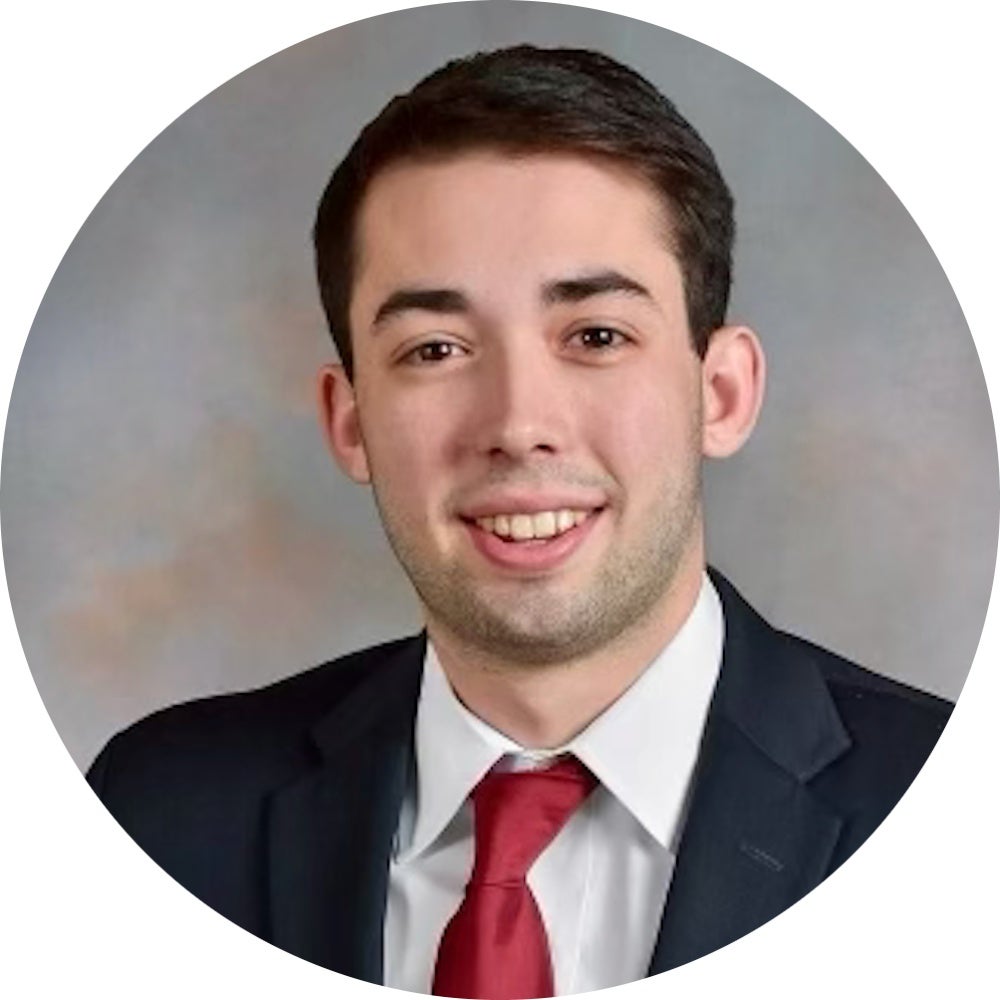
2021 Ignatian Hoya Recipient
M.S. in Physiology
I wish to utilize the valuable experiences I come across in and out of the classroom this year to grow both as an individual and as an aspiring physician.
About Nick
Nick Veale is from Boston, Massachusetts. Before coming to Georgetown’s Biomedical Graduate Education, Nick studied at Wake Forest University, majoring in Biology.
Why did you choose Biomedical Graduate Education at Georgetown University?
As I pursue a career in medicine, I was intrigued by the M.S. in Physiology program at Georgetown because of its dedicated medical center faculty advisors as well as its rigor in curriculum. I am very grateful for my current advisors as they help guide and push me in the right direction on my path to a career in medicine. Coming from a Jesuit high school, I was also very intrigued by Georgetown’s Jesuit philosophy of cultivating men and women for others.
What do you hope to accomplish here at Georgetown and/or what is your interest in biomedical research or graduate studies?
My hope for this year is to make the most out of all the opportunities afforded to me by my program and Georgetown University as a whole. I wish to utilize the valuable experiences I come across in and out of the classroom this year to grow both as an individual and as an aspiring physician. While it is very important to me that I succeed academically, I hope not to lose sight of how I can make a positive impact on my community. While in D.C., I hope to expand upon my previous experiences in working with and advocating for the rights of those who are homeless. I want to use every opportunity I come across this year at Georgetown as a chance to grow as a person.
What community service activity has meant the most to you?
During my sophomore year of high school I became involved in a club called the Saint Louis Project. The club aimed to humanize the homeless population and encouraged us to see and know them as individuals. Our group traveled weekly into downtown Boston and shared food with those who are so often seen as outcasts on the street. More importantly, we tried to spark up conversations, so we could get to know them on a personal level. I enjoyed this club so much in high school that I chose to continue my service to the homeless in other ways after graduation. Interested in medicine as well as service, I sought out two organizations: Bridge Over Troubled Waters and Health Care Without Walls. Through these nonprofits I assisted physicians who care for those in the homeless community as individuals. Being able to shadow and assist the devoted physicians at The Bridge Over Troubled Waters program has not only solidified my interest in pursuing medicine, but also my desire to remain active in advocacy for the homeless.
Because of the vulnerable and difficult conditions in which the homeless live in, they often require much medical aid. The physicians on the mobile medical vans at Bridge Over Troubled Waters are persistent in seeking out individuals that need medical attention. They choose to work on the front lines in downtown Boston to help improve the conditions that many homeless individuals live in. The health difficulties that plague the homeless communities is just one of many struggles that they endure. I hope to remain committed to helping eradicate stigmas that surround individuals of the homeless community as well as actively work for the improvement of their lives. Their voices are so often unheard, while the cyclic nature of poverty persists. The dedicated work that organizations such as Bridge Over Troubled Waters do makes me hopeful that the betterment of the lives of those who are most vulnerable in our communities is possible.
